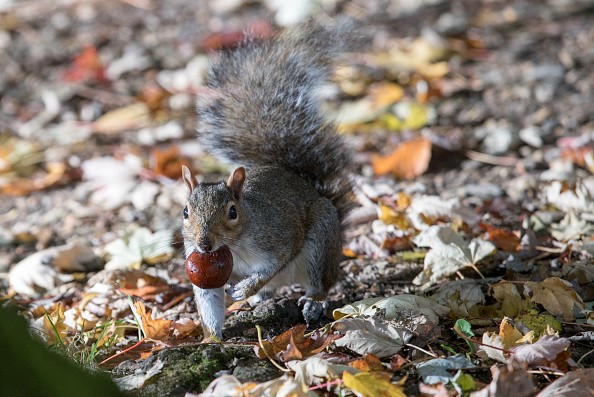Squirrels are plaguing the commercial forests of China's Sichuan Province and are consuming Japanese red cedars at a fast pace.
The Japanese red cedars, rapidly growing trees which produce wood that is particularly prized for use in construction, were planted by villagers over 2,000 square kilometers.
In the first half of 2015, it was found that the number of squirrels has grown and has removed the bark from many cedars. Thousands of square kilometers of trees around the village have been damaged by squirrels.
Nearly two-thirds of the Hongya forestry farm in Meishan, Sichuan, a cedar-growing region which has been suffering from an imbalanced ecosystem for over 10 years, has been damaged by squirrels, costing around $6.4 million.
The squirrels peel off strips of bark, which damages the tree's structure and hinders nutrition delivery and can result in fungal infections that can kill trees.
Fu Yiqiang, a zoologist at Leshan Normal University, noted that squirrels rarely eat bark in natural forests and instead consume fruits, seeds, insects and bird eggs.
However, commercial forests, which are usually made up of just one kind of tree, do not have a thriving ecosystem that provides a diverse diet for squirrels, prompting them to eat bark for sustenance.
The zoologist added that since there are no predators in artificial forests, the squirrel population multiplies.
Luo Liqun, a botanist at Leshan Normal University, explained that the common plant species in a forest die out when there is extensive human management and replaced by another dominant species that cannot provide sufficient food and an appropriate habitat for most animals. This results in one animal becoming dominant.
In order to control the squirrels, the farm exterminated the rodents through numerous methods such as poisoning, sterilization and setting lethal traps.
However, the best way to solve the squirrel problem is to fix the broken ecology, said a Hongya employee.
Some parts of the Hongya farm have been planted with other trees to recreate a natural forest environment, and given new populations of predators to create a more complete food chain.
Chinese officials see artificial forests as a potential source of the country's timber supplies.



























